As with all products, firearms evolve as new innovations and needs drive changes.
One could reasonably say the receiver (or frame) was the traditional backbone of a handgun.
The receiver was the foundation for all pistol designs.
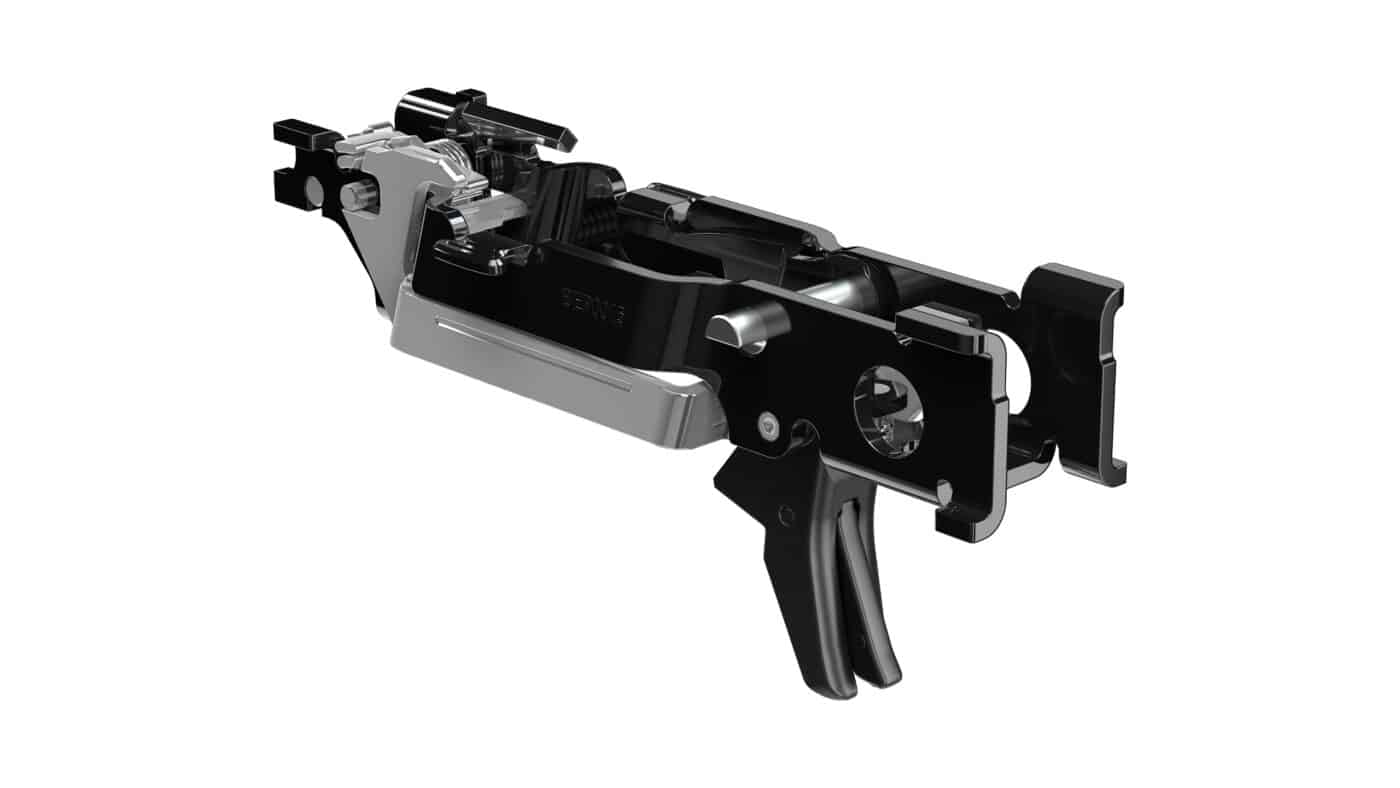
Traditional pistol designs frequently required expert gunsmithing for significant modifications. The Echelon’s use of a removable Central Operating Group allows any gun owner to swap grip modules and more.
The 1911 uses a receiver.
The SA-35 uses a receiver.
You get the point.
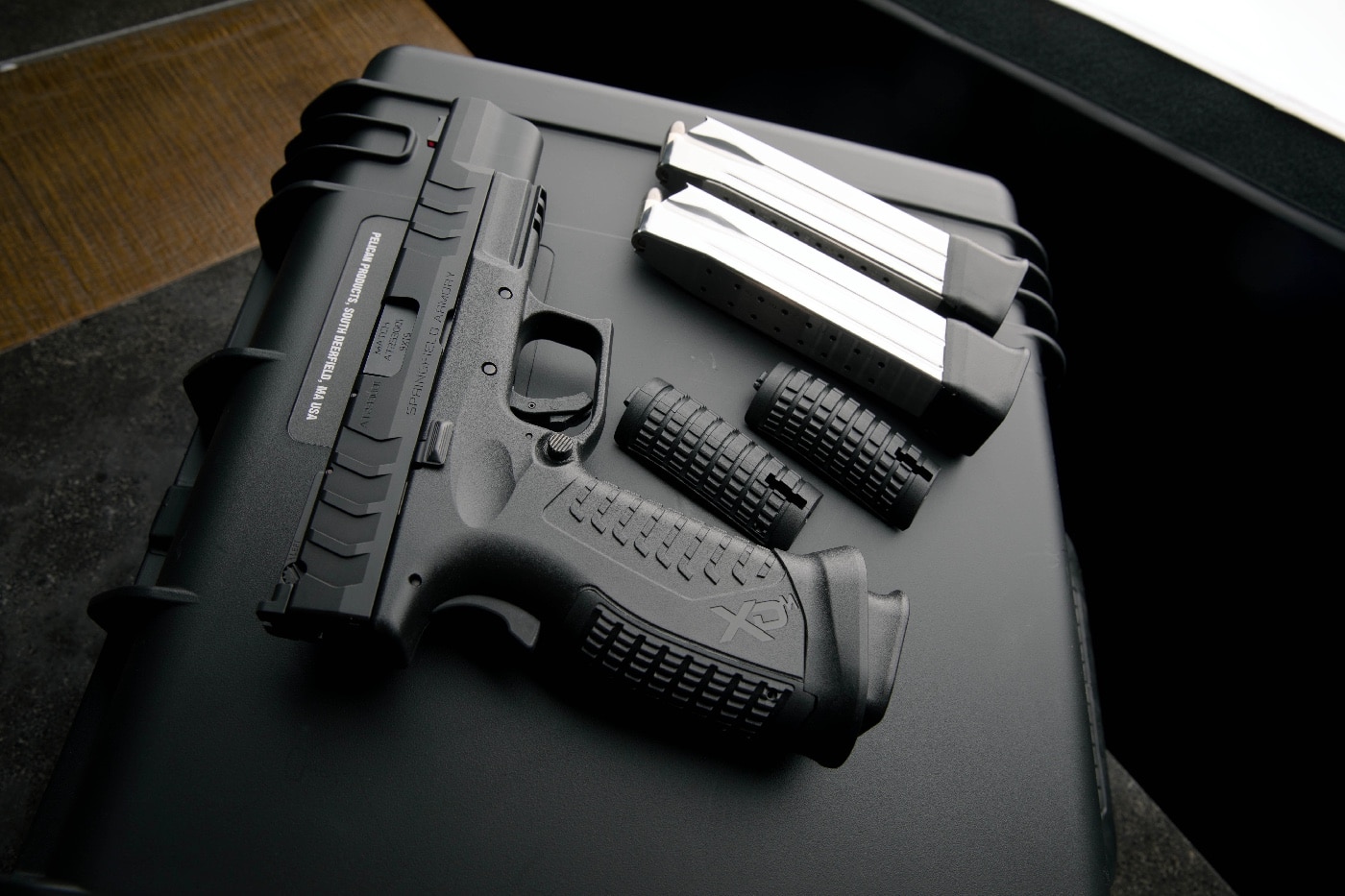
The Springfield Armory XD-M Elite is considered to be a top tier striker-fired pistol, and incorporated interchangeable backstraps.
Like everything, though, pistol design evolves.
Today, CNC machining helps reduce the hands-on work.
Another milestone in pistol evolution was use of lighter, alloy receivers to hold all the parts together.
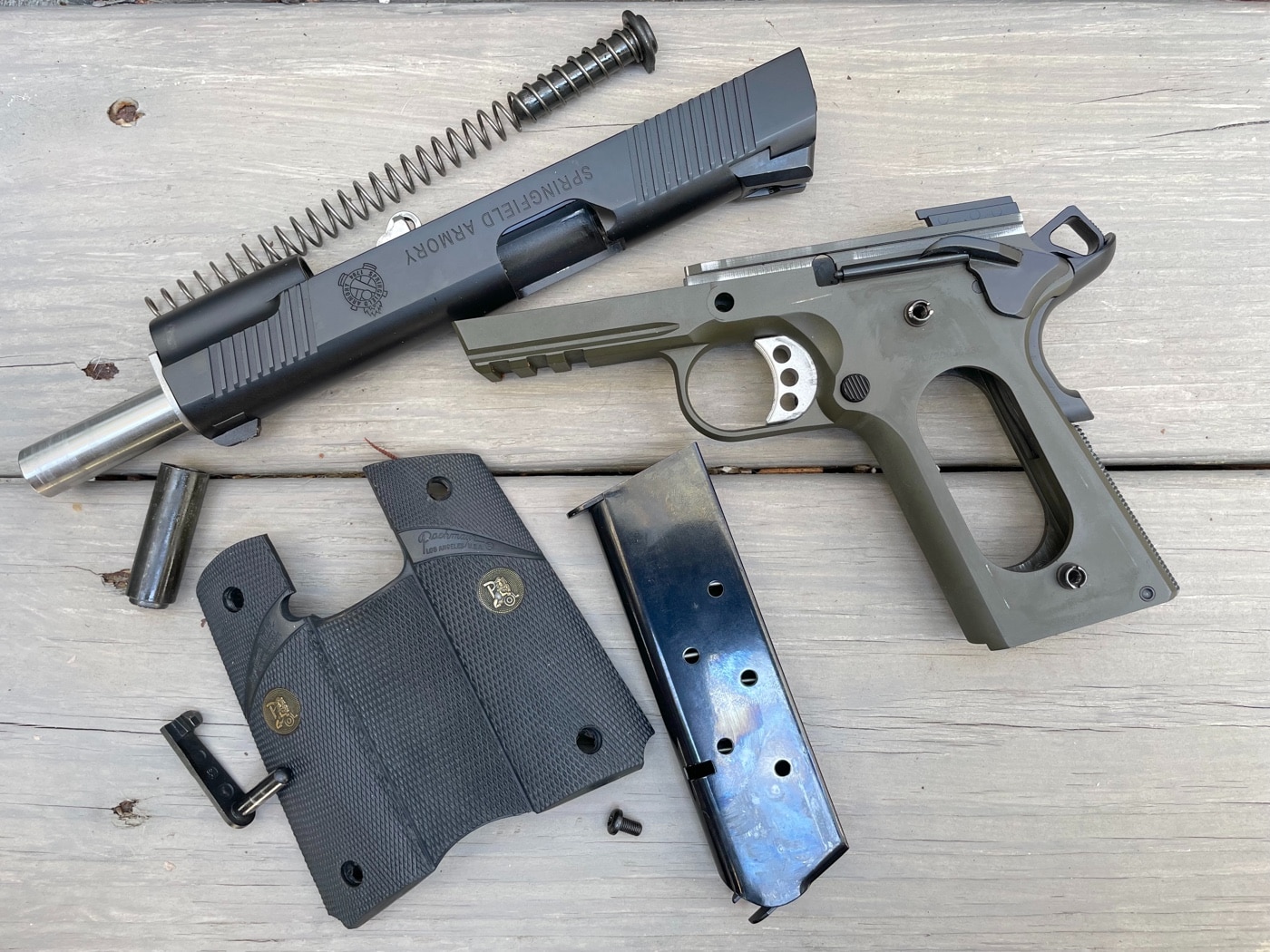
The 1911 frame, like this one from a Springfield Armory Operator, is designed to house all the parts needed to operate the pistol. It is the serialized part.
The early 1970s saw the introduction of the first polymer-frame handguns.
I know a lot of you have taken a Dremel tool to the polymer frame of a pistol.
These allowed shooters to adjust the frame fit for a more comfortable grip.
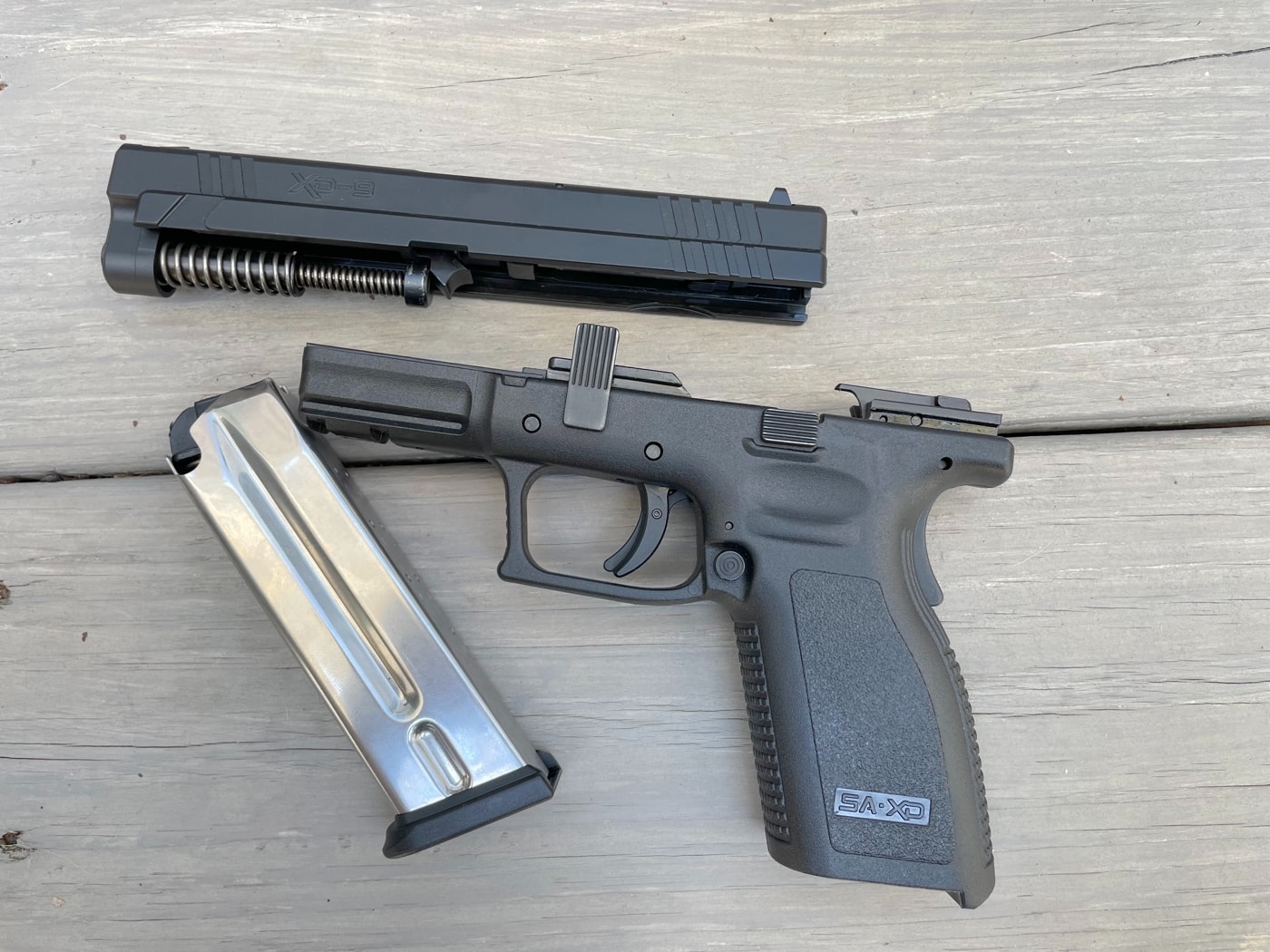
Early modern striker-fired pistols, like thisXD9 9mm, use a polymer frame in lieu of metal frame. However, the design concept is essentially the same. All parts come together via the frame.
With steel and wood, you usually needed to conform to the gun.
With polymer guns, the pistol could conform to you.
It is also the serialized part of the firearm.
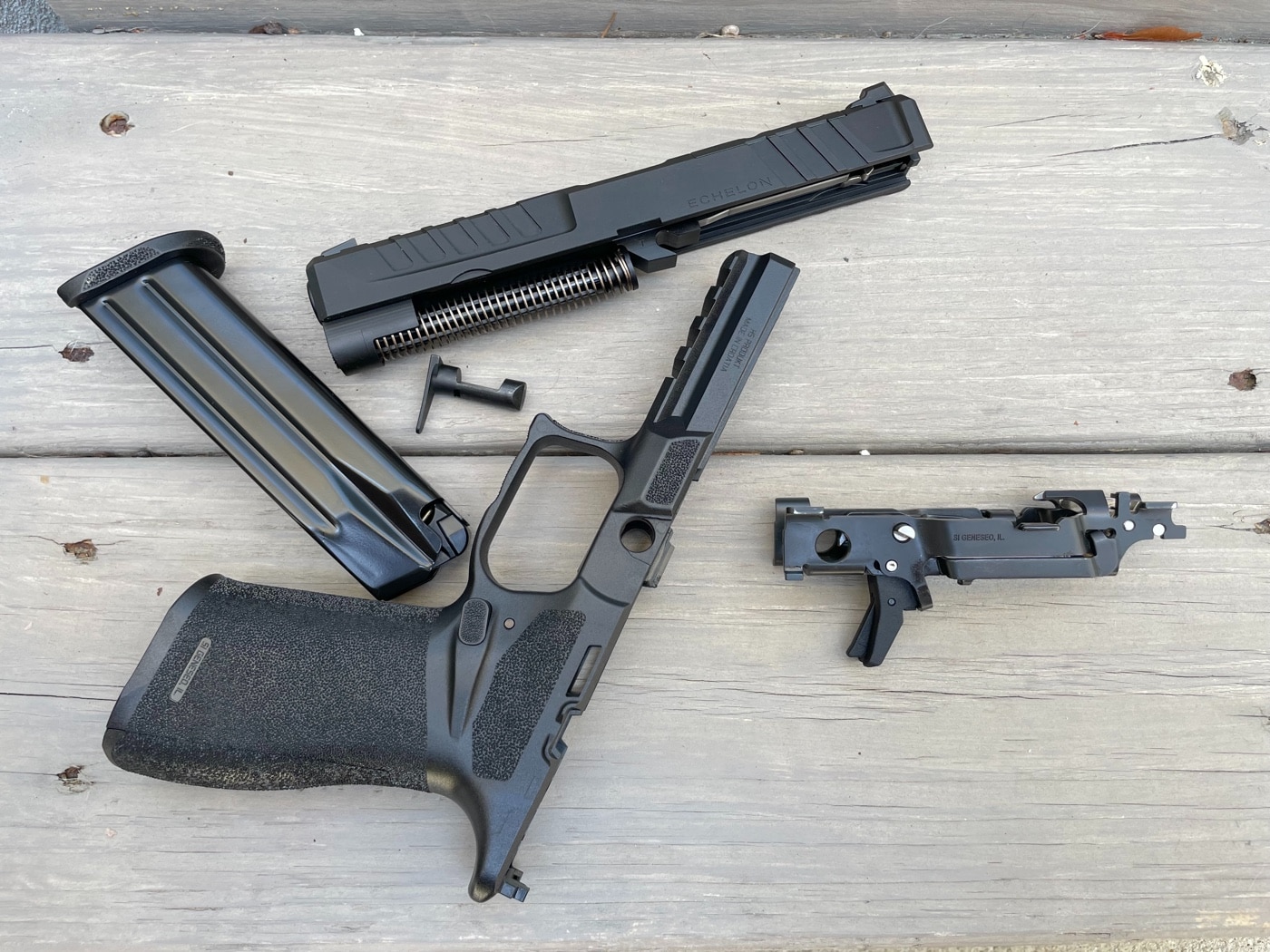
The Central Operating Group, shown on the right, is the part of the Echelon that makes it a firearm.
All of the typical safety features are contained in the Central Operating Group.
The trigger blade is in place to deactivate the trigger safety on a full trigger press.
Echelon grip modules also feature modular backstraps in small, medium and large sizes.
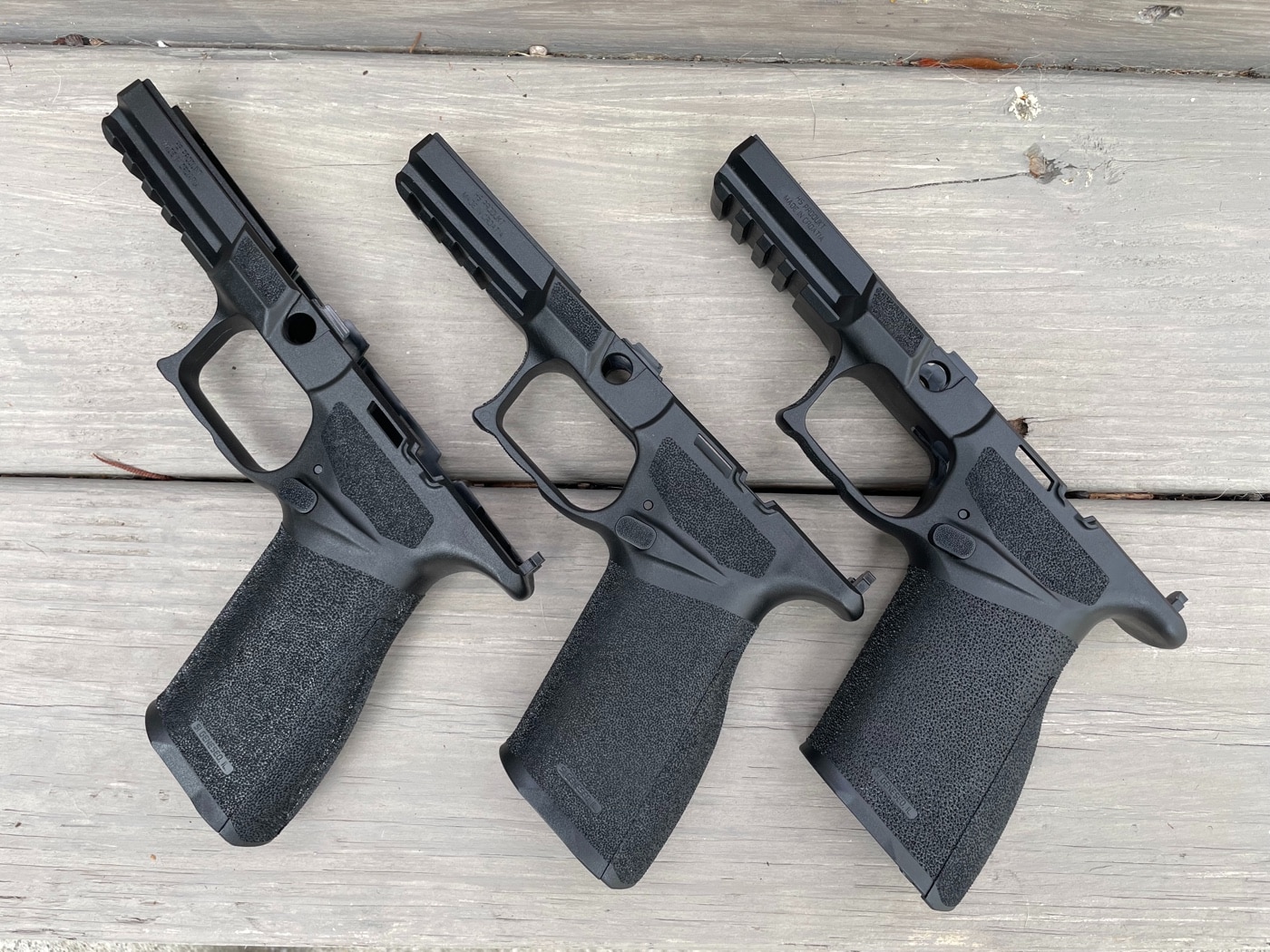
From left to right are the three sizes ofSpringfield Echelon 9mmgrip modules: Small, Medium and Large.
That gives the user nine different variations of grip dimensions.
Stock Echelon handguns come with the medium-size grip module and medium backstrap installed.
Adaptive Grip Texture (from the Hellcat) covers the grip modules and adheres without being abrasive.
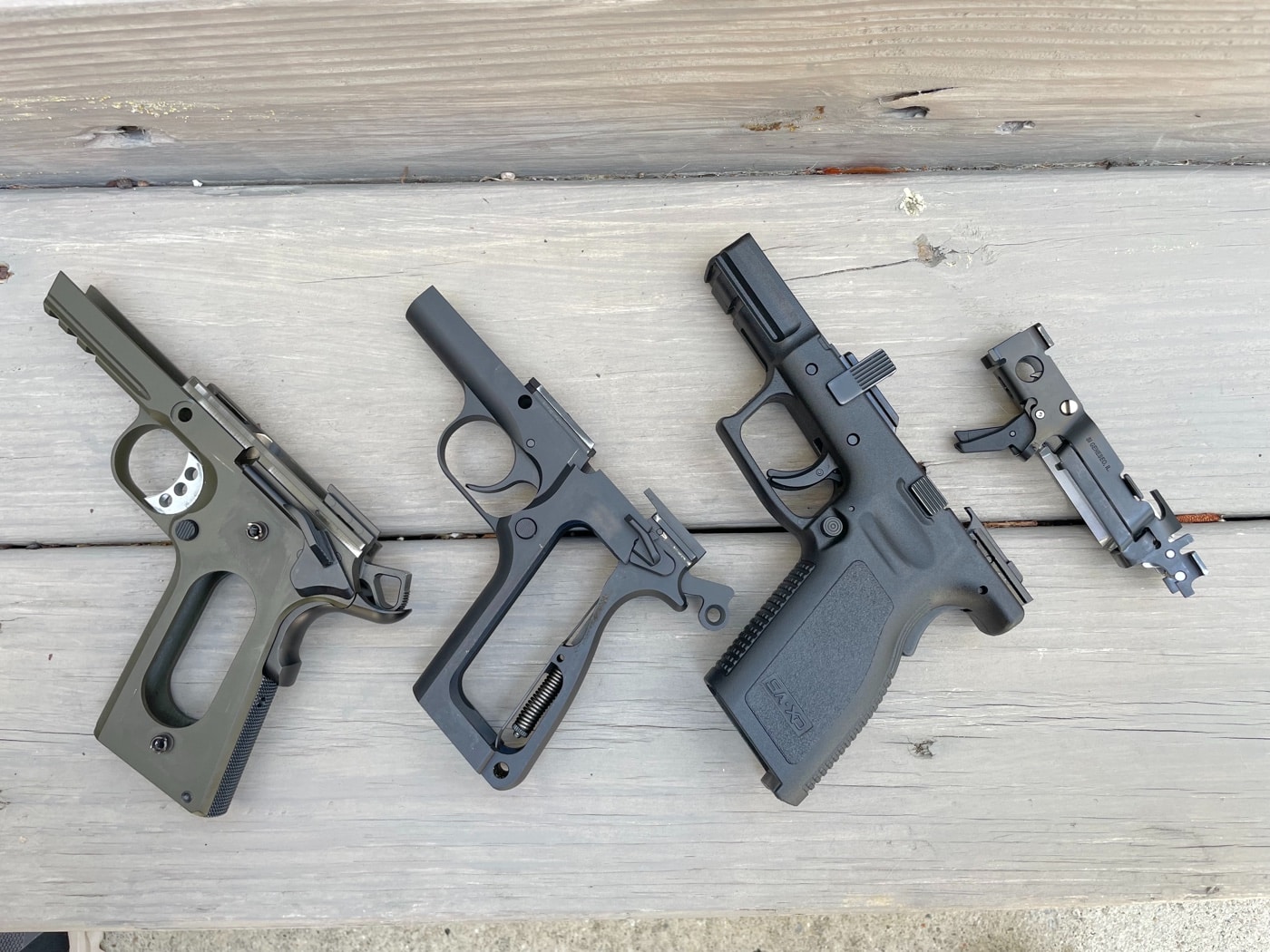
Pistol design evolved since 1911 (left) and the SA-35 (second from left), but many elements remain the same. The Central Operating Group (far right) in the Springfield Echelon makes pistol design more versatile and the grip more customizable. Springfield XD frame shown second from right.
Trigger distance is measured from the backstrap to the trigger face.
Typically, the trigger distance is the issue for shooters with small hands.
For them, the trigger is too far forward to properly press the trigger backward.
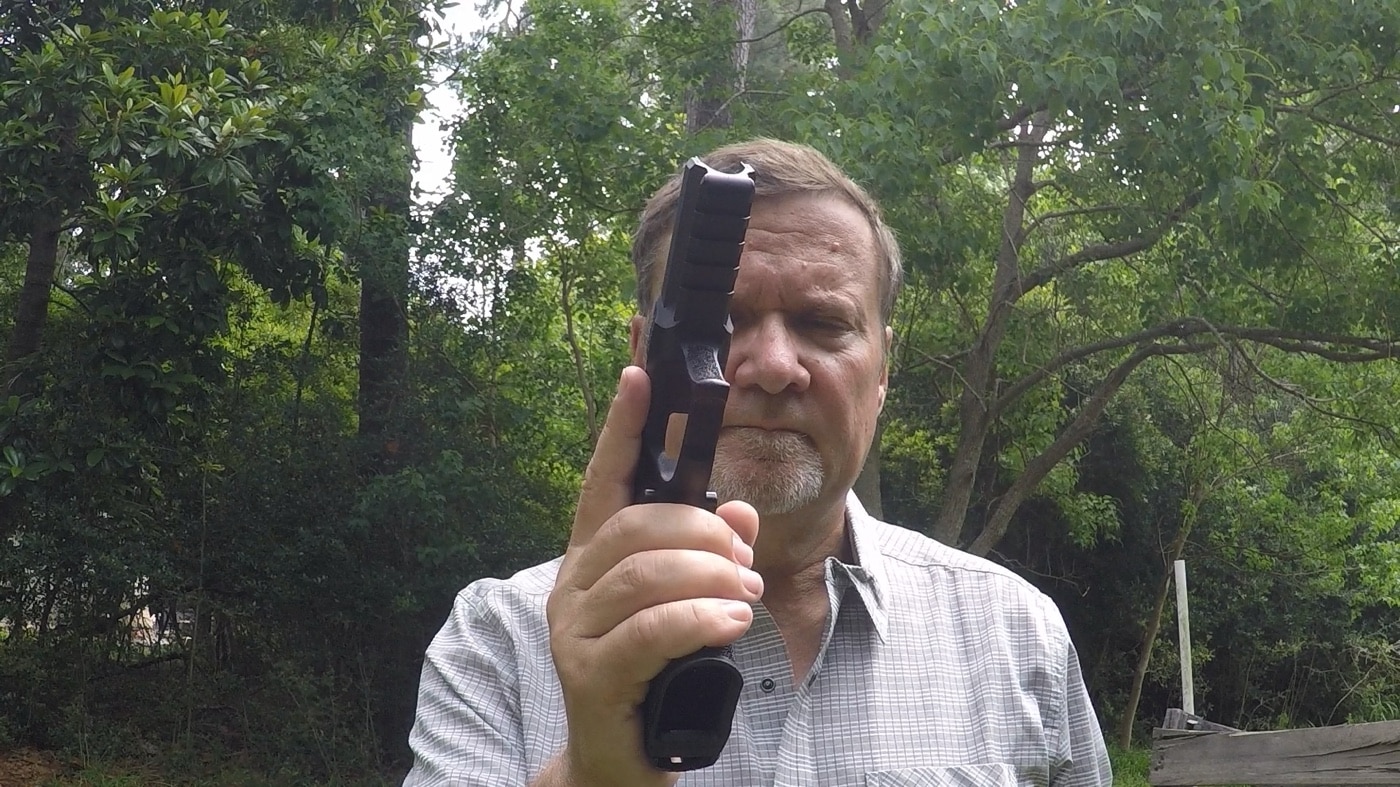
The first set of knuckles lines up with the front grip strap using the Large grip module. This grip module is too big for this hand size.
So instead, many shooters end up pushing the side of the trigger as they press back.
The trigger distance with the large grip module and medium backstrap increases to 2.99.
As you’ve got the option to tell, there are a lot of options here.
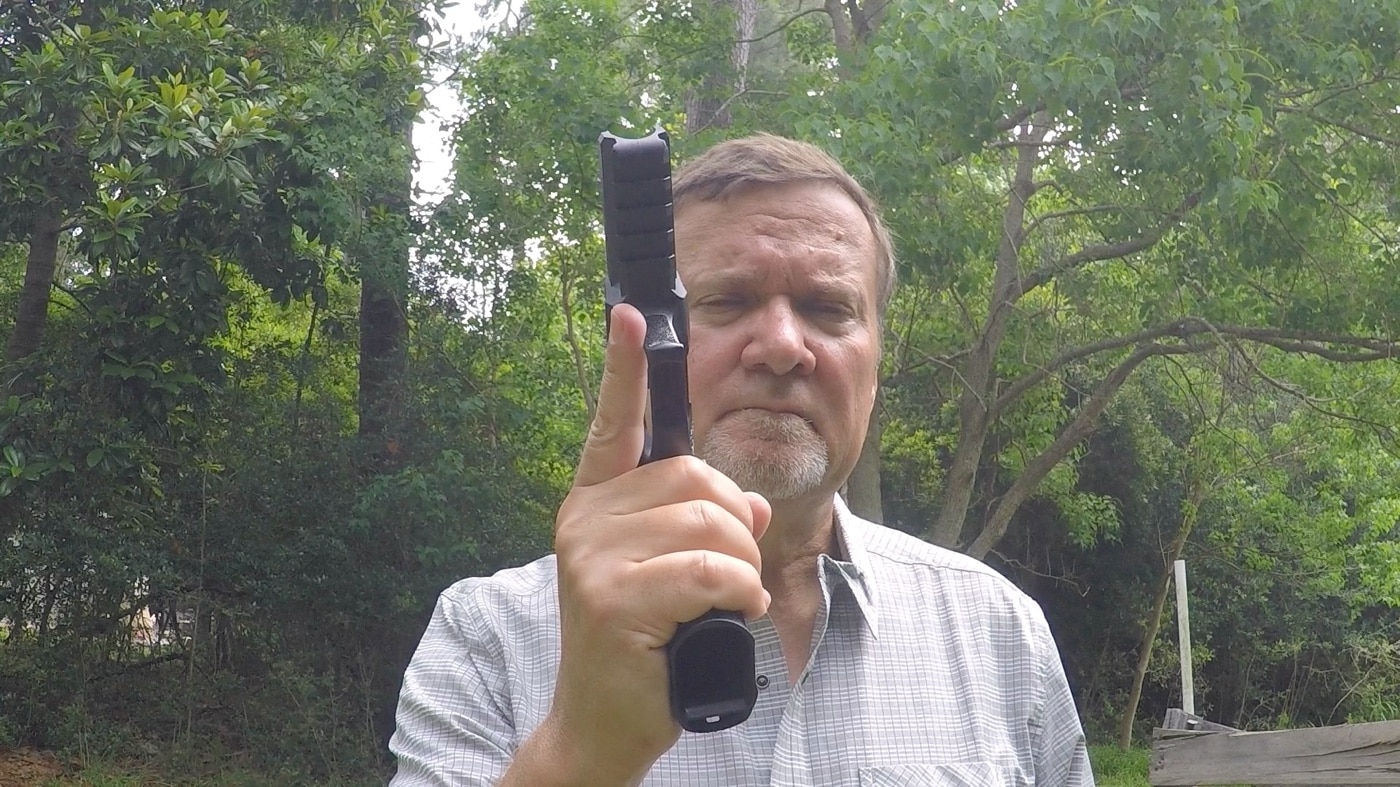
The second row of knuckles wrap around the front grip strap, indicating the Small module is too small for these hands.
This ensures a more natural point of aim.
This is checking the circumference of the grip module.
The second row of knuckles should generally fall in line with the front grip strap.
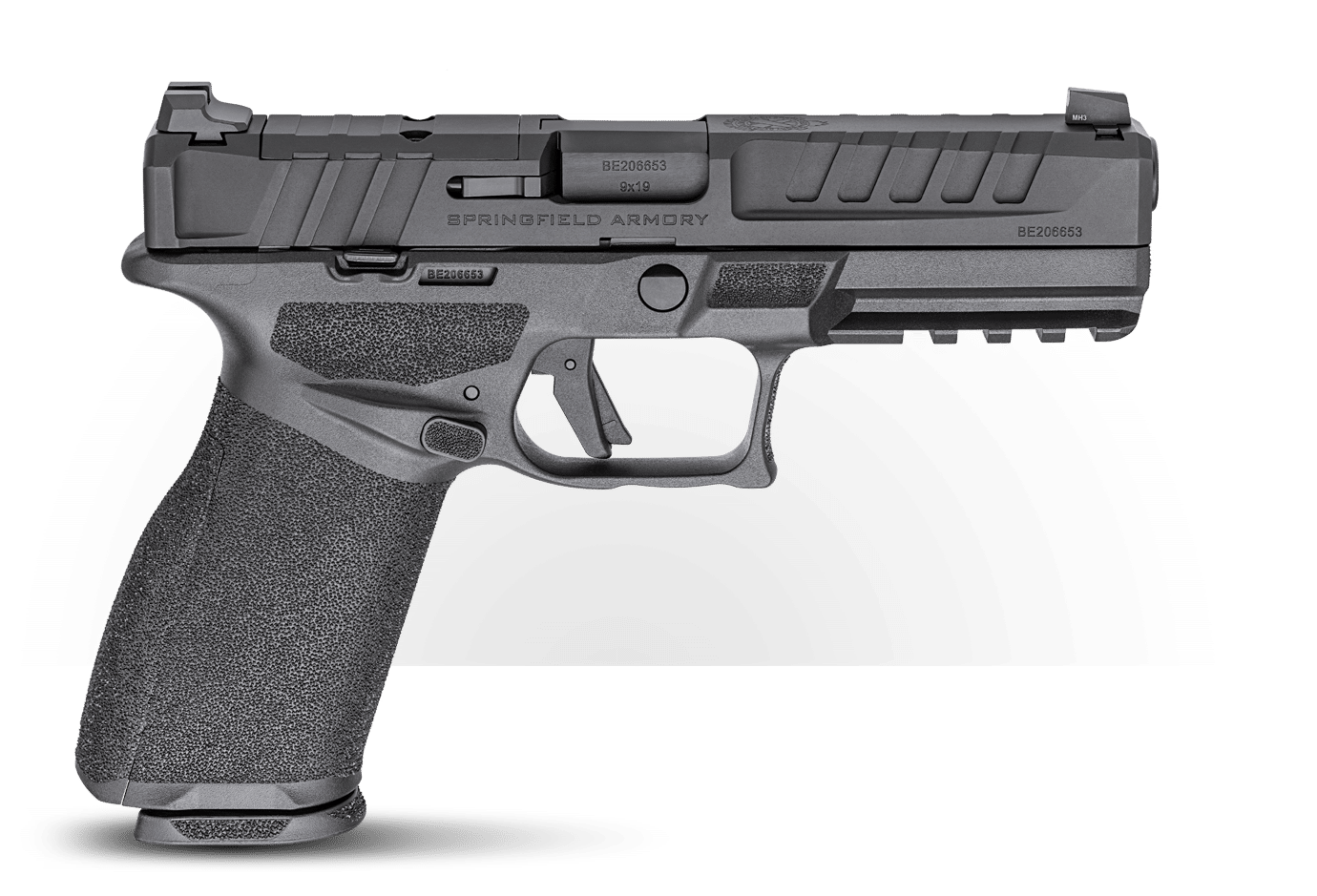
If the first set of knuckles lines up with front grip strap, the grip module is too big.
If the second row of knuckles wrap around the front grip strap, the module is too small.
The next step to see where your trigger finger naturally contacts the trigger.
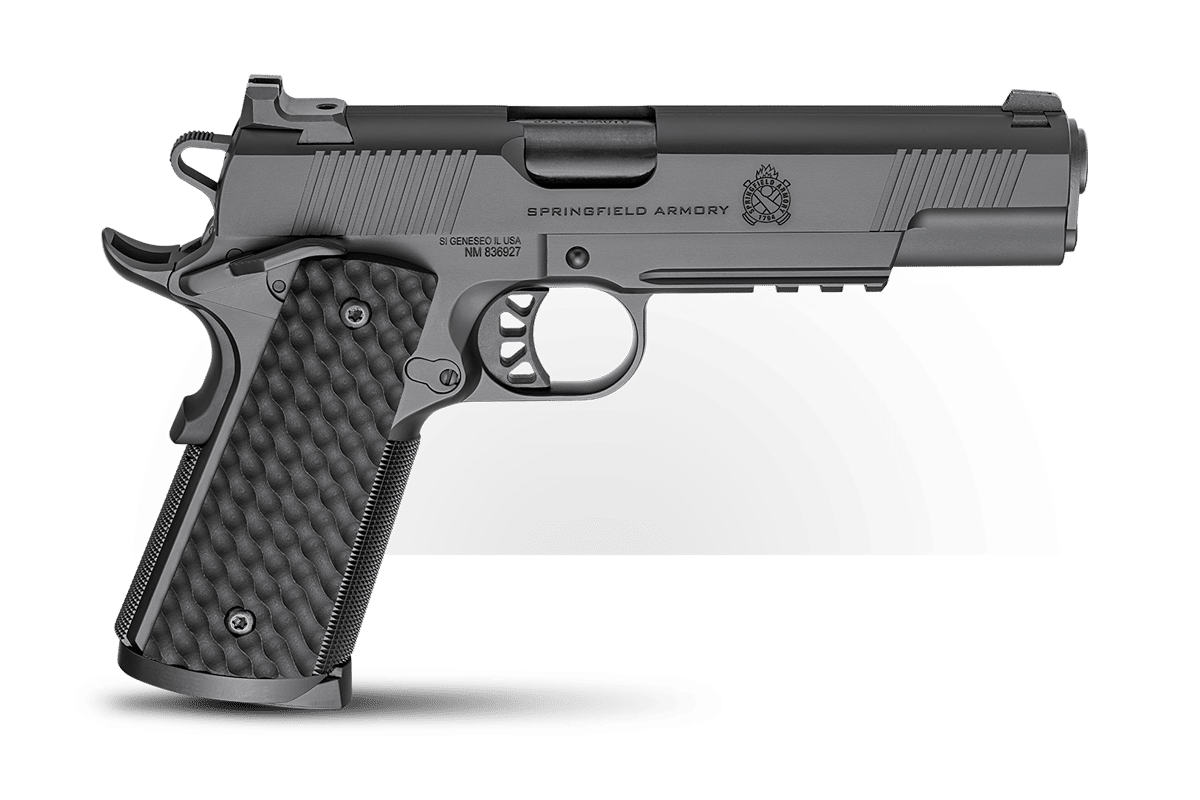
My initial fit turned out to be the medium frame and medium backstrap.
I have an average-sized hand and wear medium-sized gloves.
With a bit more shooting, I ultimately settled on the medium grip module with the small backstrap.
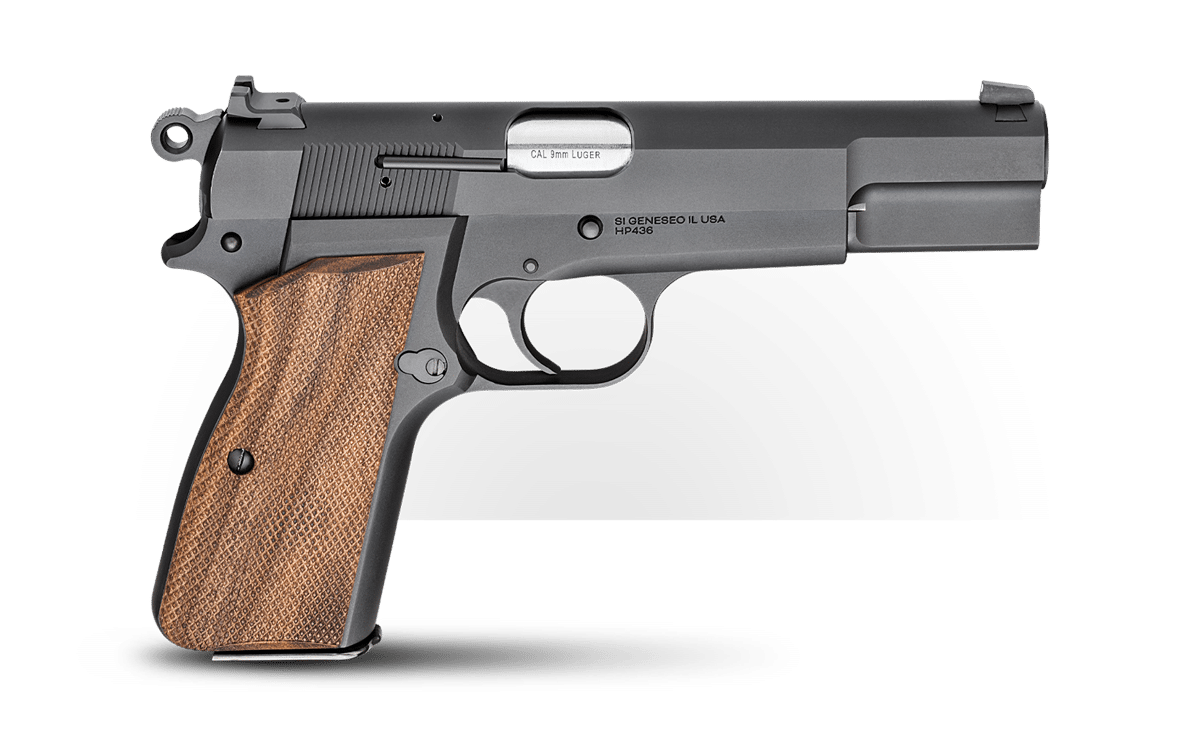
It was nice to have the option to fine tune it all to this point.
Conclusion
The Springfield Armory Echelon represents a significant step forward in handgun evolution.
Go to forum thread




